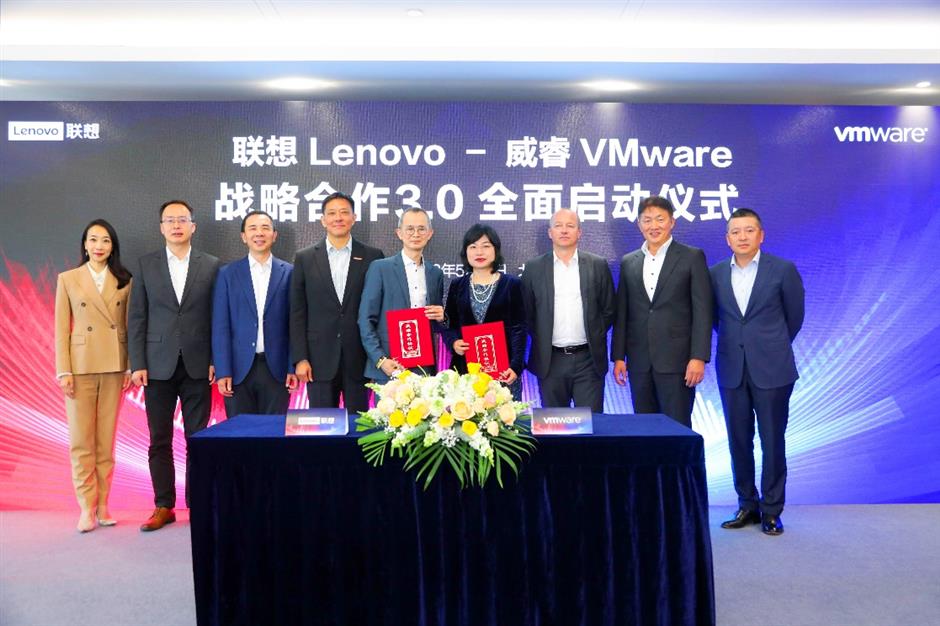Multi-cloud becoming business trend to cope with surging demands
Firms in China and the Asia Pacific region are adopting more clouds with a "multi-cloud" trend, with surging demands such as business expansion, new applications like generative AI and data security requirements, an industry survey report said.
Businesses can now manage multiple clouds and data in flexible, safe and energy-efficient ways, said VMware, a multi-cloud service provider.
The trend fits well with China's national strategies to boost its digital economy and its industrial transformation, as the country develops artificial intelligence and cloud services in green and sustainable ways.

Sylvain Cazard, senior vice president and general manager of Asia Pacific and Japan at VMware, talks at a conference in Shanghai.
Firms currently use an average of 2.2 public clouds, and this number is expected to increase to 3.2 over the next five years in Asia Pacific. About 70 percent of businesses in the region (72 percent in China) have adopted multi-cloud environments and that is expected to grow to 80 percent over the next five years, higher than the global level of 72 percent, according to a survey conducted by researcher Vanson Bourne.
The survey, which covered 1,900 organizations in Asia Pacific, was sponsored by VMware.
"Multi-cloud is becoming a de facto because they have been placing multiple applications in multiple places," said Sylvain Cazard, senior vice president and general manager of Asia Pacific and Japan at VMware.
"VMware will help enterprises to benefit from the clouds, without having the problems of cost, security, management of data and applications," Cazard told Shanghai Daily.
In China, the fastest-growing industries with multi-cloud demands are finance, manufacturing and new-energy carmaking sectors. The demand also comes from multinationals and Chinese firms growing overseas, which require multiple cloud suppliers to ensure a multiple presence around the globe, VMware said.
VMware aims to seek multi-cloud opportunities in China with local partners.
Lenovo and VMware announced this week they would expand their strategic collaboration on data centers, multi-cloud environments and edge modernization.
In addition to Lenovo, VMware local partners include Ali Cloud, JD Cloud, CITIC (Hong Kong) and some other undisclosed big names.

Lenovo and VMware announce the expansion of strategic collaboration on data centers, multi-cloud environments and edge modernization.
The partnership strategy, along with edge computing and "Sovereign Cloud" services, offers clients secured ways to move and manage chosen data in multi-cloud services. It solves risks for governance compliance and data security, one of the biggest concerns for doing business on cloud services.
The application of artificial intelligence has set off a global upsurge, and brought a new revolution in computing power, said Lenovo and VMware.
Generative AI and ChatGPT are next-generation applications, with data-intensive and computing-intensive requirements. VMware can leverage virtualization technologies to make computing capacity work more efficient and cost effective in multi-cloud environments, Cazard said.
VMware has received an acquisition bid from Broadcom of US$61 billion and the deal is expected to be complete in October for regulatory approval.

A survey, covering 1,900 organizations in the Asia Pacific, shows firms will adopt more public clouds, according to researcher Vanson Bourne.















